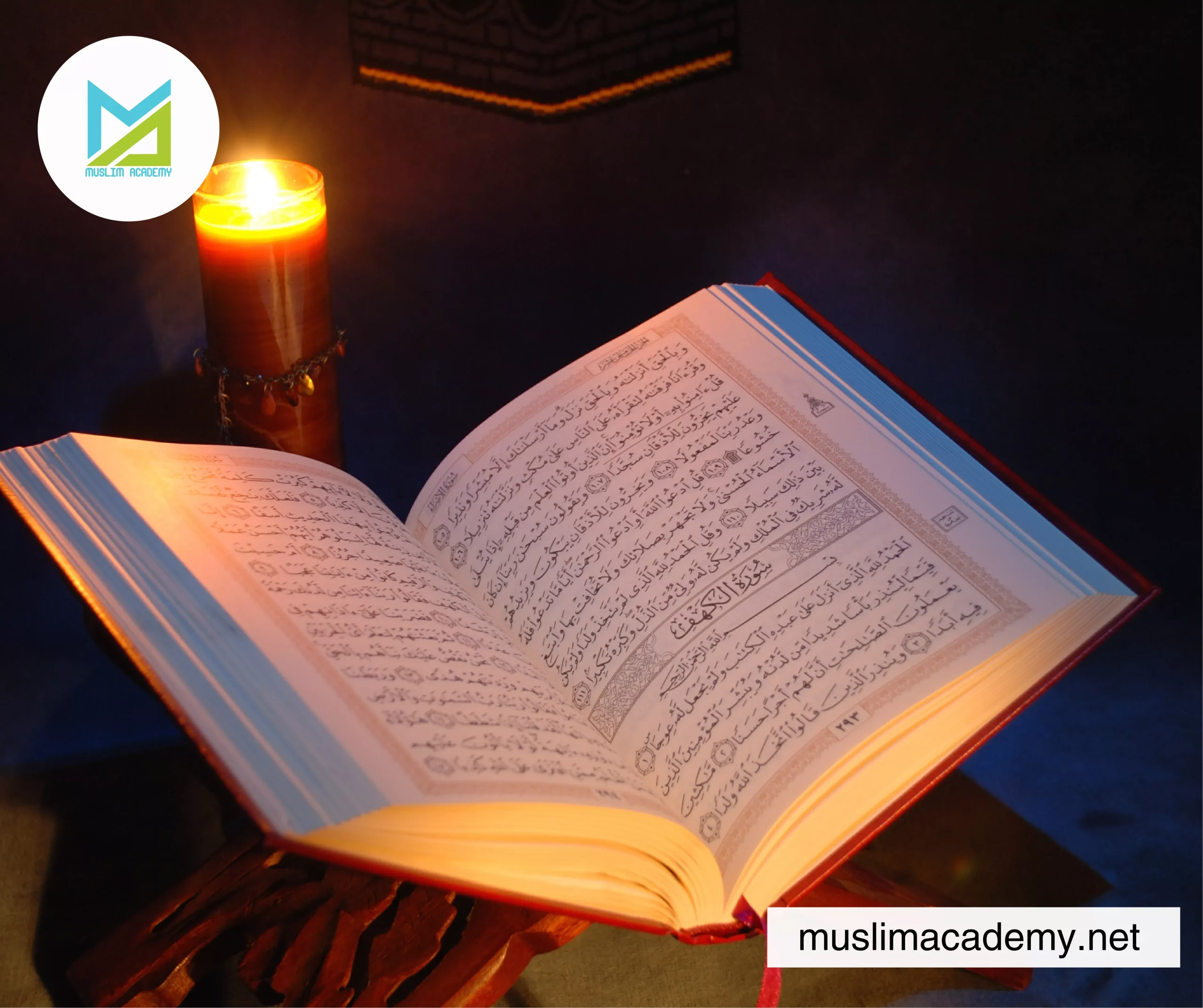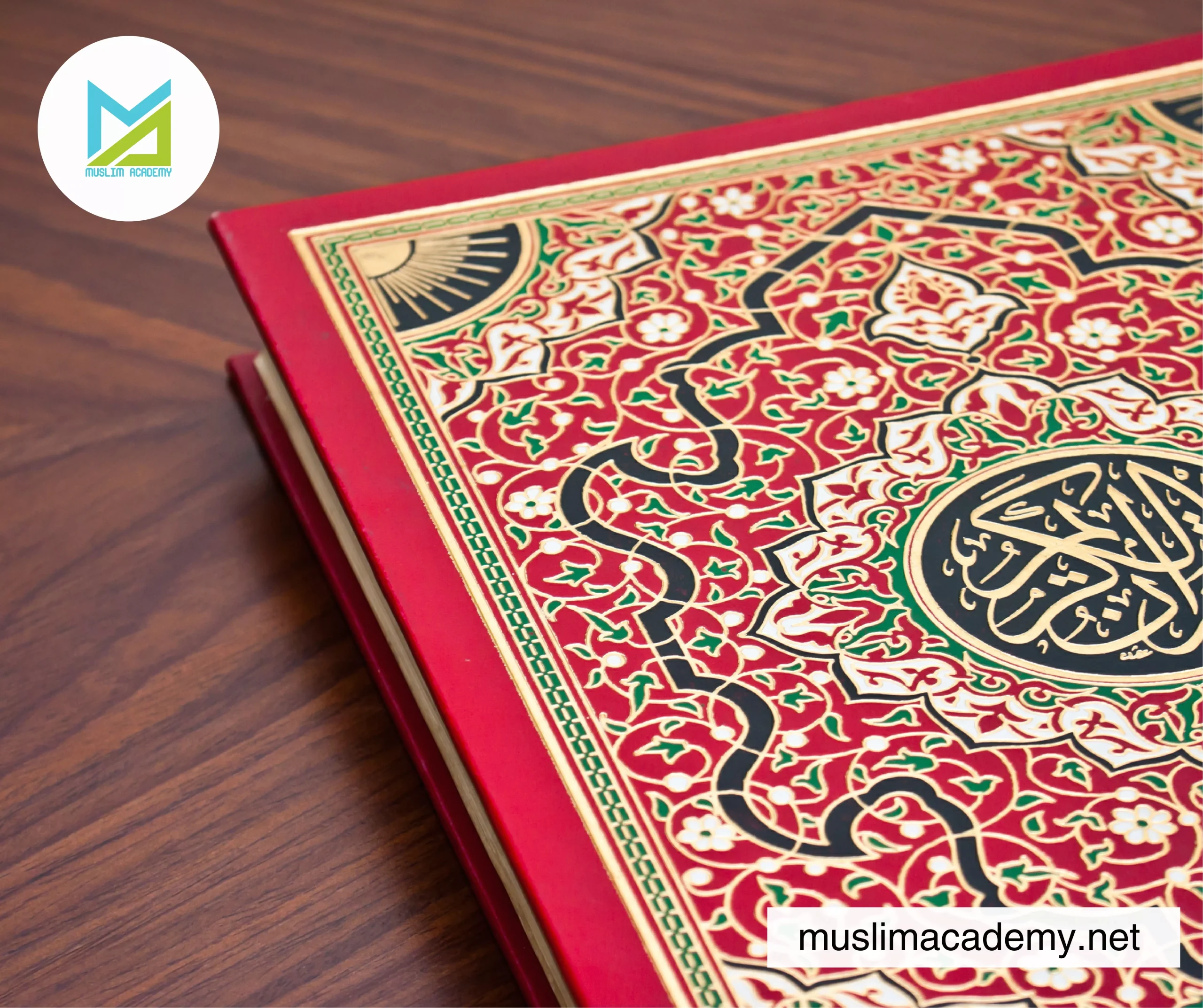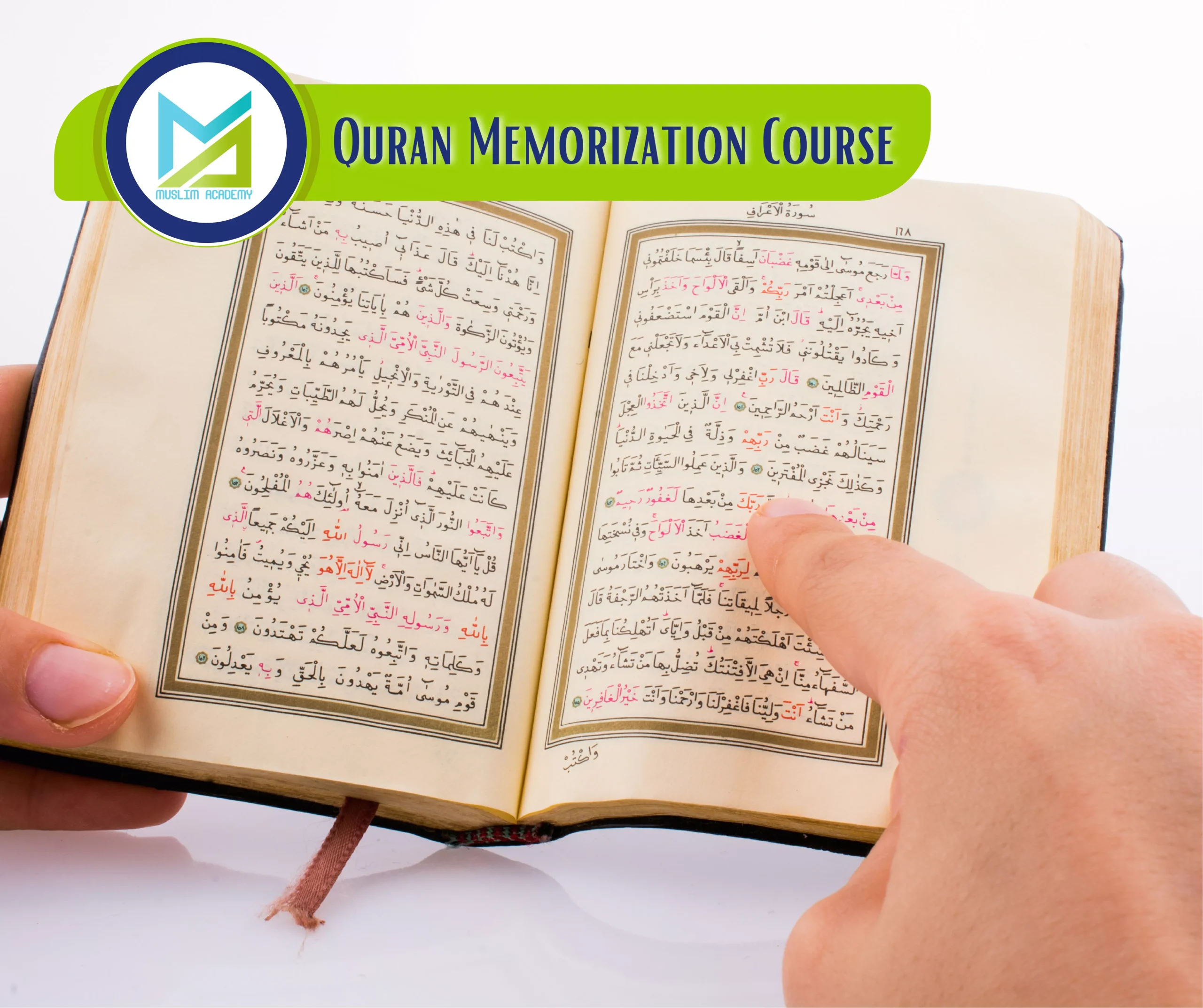Start Online Quran Classes with Muslim Academy
https://muslimacademy.net/index.php/free-trial/
The pursuit of memorizing the Holy Quran represents one of the most noble and challenging endeavors in Islamic education, requiring dedication, discipline, and systematic guidance to achieve success. A well-designed Quran Memorization Course with Muslim Academy provides the structured framework necessary for students to embark on this sacred journey while ensuring they develop proper techniques, maintain motivation, and achieve their memorization goals effectively. Unlike casual approaches to Quranic learning, formal courses offer comprehensive curricula that address the multiple dimensions of successful memorization, from technical pronunciation skills to spiritual development and long-term retention strategies.
The significance of pursuing Quranic memorization through structured educational programs cannot be overstated. The complexity of memorizing over 6,000 verses in classical Arabic, while maintaining perfect accuracy in pronunciation and meaning, requires expert guidance and systematic progression that only qualified instructors can provide. Students who attempt memorization without proper course structure often struggle with retention, develop poor pronunciation habits, or become overwhelmed by the magnitude of their undertaking.
Comprehensive Curriculum Design and Educational Philosophy
An effective Quran Memorization Course with Muslim Academy incorporates multiple educational components that work together synergistically to optimize learning outcomes. The curriculum typically begins with foundational elements such as Arabic alphabet mastery, basic tajweed rules, and proper recitation techniques before progressing to systematic memorization strategies and advanced pronunciation refinements.
The educational philosophy underlying successful memorization programs recognizes that students learn most effectively when new material builds logically upon previously mastered concepts. This scaffolding approach ensures that students develop confidence through early successes while gradually taking on more challenging memorization tasks as their skills and stamina improve.
Traditional Islamic pedagogical principles are carefully integrated with contemporary educational research to create learning experiences that honor the sacred nature of the text while maximizing educational effectiveness. This integration respects the wisdom of centuries-old teaching methods while incorporating modern insights about memory formation, learning styles, and motivational psychology.
The spiritual dimension of memorization is woven throughout the curriculum, helping students understand that their efforts serve purposes beyond academic achievement. Regular reflection exercises, discussions about verse meanings, and opportunities for practical application help students develop the spiritual consciousness that Islamic education seeks to cultivate.
Progressive Learning Stages and Skill Development
A systematic Quran Memorization Course with Muslim Academy typically organizes learning into distinct stages that correspond to students’ developing capabilities and confidence levels. The initial stage focuses on building essential foundational skills, including accurate letter recognition, proper pronunciation of individual sounds, and a basic understanding of the tajweed rules that govern Quranic recitation.
During the intermediate stage, students begin memorizing shorter chapters while simultaneously developing strategies for longer-term retention. This phase emphasizes the development of personal memorization techniques, regular review schedules, and the ability to self-assess accuracy. Students learn to break down complex passages into manageable segments and develop mental associations that aid memory recall.
Advanced stages involve memorizing longer chapters and developing sophisticated review systems that maintain previously memorized material while continuing to add new content. Students at this level often begin helping newer students, which reinforces their memorization while developing teaching and leadership skills.
The progression through these stages is carefully monitored and adjusted based on individual student needs and capabilities. Flexible pacing ensures that students can advance when ready while receiving additional support in areas where they may struggle.

Technological Integration and Modern Learning Tools
Contemporary Quran Memorization Course with Muslim Academy programs increasingly incorporate technological tools that enhance traditional teaching methods without replacing the essential human elements of Islamic education. Digital audio recordings provide students with consistent pronunciation models, allowing them to practice with renowned reciters and develop proper intonation patterns.
Mobile applications and online platforms offer convenient access to memorization aids, progress tracking systems, and review schedules that help students maintain consistent practice routines. These tools are particularly valuable for students with busy schedules or those who need to practice while traveling or away from their primary learning environment.
Interactive software can provide immediate feedback on pronunciation accuracy, helping students identify and correct errors before they become habitual. Some advanced systems use speech recognition technology to analyze recitations and suggest areas for improvement, supplementing instructor feedback with additional practice opportunities.
However, the most effective programs maintain a careful balance between technological convenience and traditional Islamic educational values. Technology serves as a tool to enhance human instruction rather than replace the wisdom, experience, and spiritual guidance that qualified teachers provide.
Individualized Learning Approaches and Personal Development
Recognizing that students bring different backgrounds, learning styles, and personal goals to their memorization journey, a quality Quran Memorization Course with Muslim Academy offers individualized approaches that accommodate diverse needs while maintaining consistent quality standards. Some students excel at auditory memorization, while others benefit from visual aids or kinesthetic learning strategies.
Personal goal setting plays a crucial role in maintaining motivation throughout the extended memorization process. Students work with instructors to establish realistic timelines, identify potential challenges, and develop strategies for overcoming obstacles that may arise during their studies.
Regular one-on-one consultations allow instructors to monitor individual progress, provide personalized feedback, and adjust learning strategies based on student performance and preferences. These individualized interactions ensure that each student receives the specific support needed to achieve success.
Character development and spiritual growth are integrated throughout the individualized learning process. Students reflect on how memorized verses apply to their circumstances and develop habits of regular reflection and contemplation that extend beyond formal study periods.
Community Building and Peer Support Systems
The social dimension of Islamic learning is preserved and enhanced through community-building activities that connect students with peers who share similar goals and challenges. Study groups, partner recitation sessions, and group review activities create supportive networks that provide encouragement and motivation during difficult periods.
Peer mentoring programs pair experienced students with newcomers, creating relationships that benefit both partners. Mentors reinforce their memorization while developing leadership skills, while newer students receive additional support and guidance from someone who has recently faced similar challenges.
Regular community events such as recitation competitions, milestone celebrations, and group discussions about memorized passages help students feel connected to broader Islamic learning traditions. These activities demonstrate that memorization serves communal as well as individual purposes.
Family involvement is actively encouraged through parent education sessions, home practice guidelines, and regular communication about student progress. When families understand and support memorization efforts, students achieve better outcomes and maintain stronger motivation throughout their courses.

Assessment Methods and Progress Evaluation
Comprehensive assessment in a Quran Memorization Course with Muslim Academy extends beyond simple recitation testing to include evaluation of pronunciation accuracy, retention over time, understanding of meanings, and development of independent learning skills. Multiple assessment methods provide a complete picture of student progress and identify areas needing additional attention.
Traditional oral examinations remain central to memorization assessment, but modern programs supplement these with systematic progress tracking, self-assessment exercises, and portfolio development. Students maintain records of their memorization journey, including reflections on challenges overcome and lessons learned.
Regular review assessments ensure that previously memorized material remains accurate and easily accessible. These assessments serve both evaluative and educational purposes, identifying any areas where memory may be weakening while providing additional practice opportunities.
Formative assessment techniques help instructors adjust their teaching strategies based on ongoing student performance. Rather than waiting for formal testing periods, continuous monitoring allows for immediate intervention when students encounter difficulties.
Long-term Retention Strategies and Maintenance Planning
A responsible Quran Memorization Course with Muslim Academy prepares students not only to achieve initial memorization goals but also to maintain their achievements throughout their lives. Long-term retention requires ongoing practice, regular review cycles, and continued engagement with memorized material in meaningful contexts.
Students learn to develop personalized maintenance schedules that fit their post-course lifestyles and commitments. These schedules balance the need for regular review with practical considerations such as work responsibilities, family obligations, and other educational pursuits.
Advanced students often transition into teaching or leadership roles within their learning communities, which provides natural opportunities for continued engagement with memorized material. Teaching others serves as an excellent retention strategy while contributing to the broader Islamic educational mission.
Integration of memorized verses into daily spiritual practices ensures that memorization remains a living part of students’ religious observance rather than merely an academic achievement. Students learn to use their memorized knowledge for prayer, meditation, and guidance in decision-making.
Professional Development and Instructor Excellence
The success of any Quran Memorization Course with Muslim Academy depends heavily on the qualifications, experience, and ongoing professional development of instructors. Qualified teachers must possess not only complete Quranic memorization and deep knowledge of Islamic sciences but also skills in pedagogy, psychology, and educational leadership.
Instructor training programs ensure that teachers understand modern learning principles while maintaining authentic Islamic educational traditions. This training covers topics such as differentiated instruction, motivational psychology, assessment methods, and classroom management techniques.
Ongoing professional development keeps instructors current with educational innovations, technological tools, and best practices in Islamic education. Regular workshops, conferences, and collaborative learning opportunities help teachers continually improve their effectiveness.
Instructor certification processes verify that teachers meet established standards for both Islamic knowledge and educational competency. These standards help ensure that students receive high-quality instruction regardless of which program they choose.
Cultural Adaptation and Global Accessibility
Modern Quran Memorization Course with Muslim Academy programs serves increasingly diverse student populations, requiring sensitivity to different cultural backgrounds, linguistic traditions, and educational expectations. Successful programs adapt their approaches to accommodate this diversity while maintaining authentic Islamic educational principles.
Students from non-Arabic-speaking backgrounds may need additional support with pronunciation and linguistic comprehension, while those from Arabic-speaking families might focus more on formal Quranic Arabic, which differs from contemporary spoken dialects. Cultural sensitivity helps instructors address these varying needs effectively.
International accessibility through online platforms has made high-quality memorization courses available to students worldwide. These global programs must balance standardized quality control with sensitivity to local cultural contexts and educational traditions.
Language considerations extend beyond Arabic proficiency to include the primary languages students use for instruction and explanation. Multilingual capabilities help ensure that complex concepts are understood clearly, regardless of students’ linguistic backgrounds.
Conclusion
The development and implementation of a comprehensive Quran Memorization Course with Muslim Academy programs represents a significant advancement in Islamic education that successfully combines traditional scholarship with contemporary pedagogical insights. These structured approaches provide students with the systematic guidance, supportive community, and long-term planning necessary for successful memorization achievements.
The investment of time, energy, and resources required for Quranic memorization is substantial, making the selection of quality educational programs crucial for student success. Well-designed courses honor the sacred nature of their subject matter while employing effective teaching methods that optimize learning outcomes and spiritual development.
As Islamic education continues to evolve in response to contemporary needs and opportunities, the Quran Memorization Course with Muslim Academy programs will likely play increasingly important roles in preserving this ancient tradition while making it accessible to new generations of Muslim students worldwide. The continued refinement and expansion of these educational offerings ensures that the noble pursuit of Quranic memorization remains vibrant and achievable for dedicated students, regardless of their backgrounds or circumstances.
